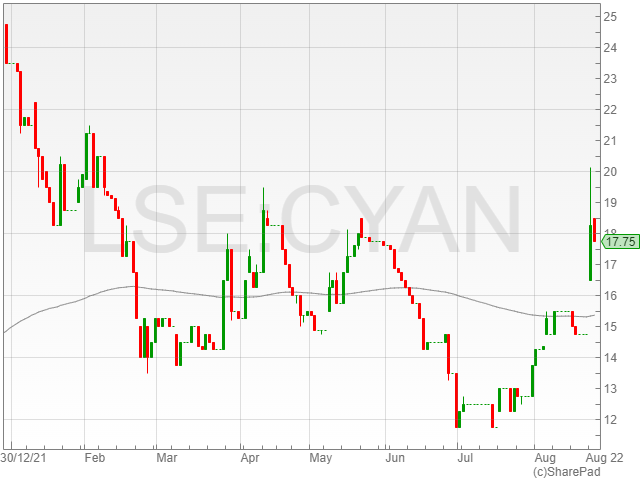CyanConnode Holdings shares slid 4.9% to 17.3p in early morning trading on Tuesday, despite a 49% revenue climb to £9.6 million in FY 2022 from £6.4 million the last year, representing the firm’s highest annual revenue on record.
The company reported an EBITDA loss of £401,000 against £2 million, and an adjusted EBITA of £58,000 from a loss of £1.8 million in FY 2021.
CyanConnode Holdings announced a 61% gross profit climb to £5 million against £3.1 million, along with a 62% fall in operating loss to £1 million compared to £2.7 million the year before.
The company highlighted 612,000 Omnimesh Radio Frequency Modules shipped against existing contracts over the year from 481,000 the last year, alongside 152,000 Omnimesh RF Modules ordered for a new customer in northern India.

Meanwhile, CyanConnode reported 31,000 Omnimesh RF Modules for a follow-on order for the Metropolitan Electricity Authority Smart Grid Project in Thailand and 100,000 Omnimesh RF Modules ordered for a new customer in Africa.
The group also noted a 58% growth in cash to £2.4 million from £1.5 million year-on-year, with two oversubscribed placings completed, raising £5.15 million before expenses.
“We’ve been delighted with the results achieved during the financial year being reported, which showed record revenues being achieved, and a positive adjusted EBITDA. FY22 also saw record numbers of modules being shipped and record cash being collected,” said CyanConnode executive chairman John Cronin.
“Since the year end we have announced orders for a total of 1.3 million units in India, and orders for new products in a new territory (the MENA region). We’re currently integrating with nine new meter types.”
“In India, the new RDSS has been launched and the empanelment process is progressing, allowing more tenders to be released. Momentum in the markets in which we operate continues to grow, and we’re looking forward to continued success in the current financial year.”
CyanConnode did not declare a dividend for FY 2022, and commented it had no plans to introduce a dividend policy in the immediate future, instead reinvesting returns into company development.
